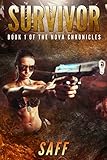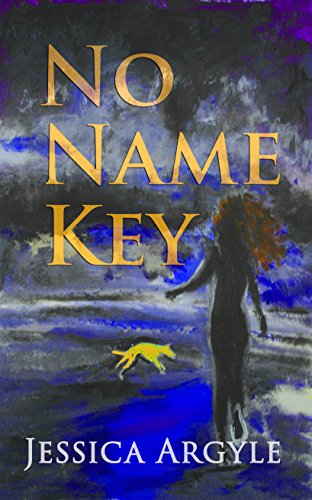Chapters are a convention that we have inherited. I don't know when they first became formalized. We find episodes where distinct events take place and specific objectives are achieved in some of the earliest stories. The first example out of my head is the Iliad of Homer, which is divided into 24 books, whose distinguishing features are much the same as what we use to define chapters: differences in time and place, characters, and completed events, each of which contributes to a larger story.
Whether it is simply the practical convenience of having a point where you can put down the book and turn out the light, to pick up again easily the following evening, or whether there is something cognitive, or rhythmic, or otherwise mysterious about the nature of this structure, it is one that is used in most modern novels.
Indeed, many modern writers subdivide their chapters into scenes. Usually this subdivision allows the author to avoid wasting time with
narrative taxis*. Sometimes this subdivision shows that the author can't write long scenes.
A new chapter, therefore, begins something new in the story. A chapter has to have a goal or objective; something has to be achieved, so that the chapter can come to an end, and a new chapter begin.
The first paragraph of the chapter, therefore, has a very specific job of work to do. This is why I don't call it a paragraph at all. I call it a
chapter head.
My reasons for not calling it a paragraph are partly because of objectives, partly because of conventions, and partly because it is a place where normal narrative rules are broken good and hard for solid practical reasons.
Consider this as the first line of a chapter:
It seemed to Inspector Bodkin that the carriage door was not properly shut.
In any other paragraph, you would be rebuked by saying that something seemed. Using "seem" is a crime I call 'touching the mask' which I will probably have to explain in a lot more detail in another post, but which is, in brief: calling attention to the process of narration within the narration.
But in a chapter head, the fragment 'It seemed to Inspector Bodkin that...' gives the reader vital practical information; it tells the reader that this chapter will be, either broadly or narrowly, from the point-of-view of Inspector Bodkin.
It also gives us "carriage door". The broader context of the book will tell you whether this is a train or a coach, and whether the Inspector is on it, in it or beside it you would expect to know from the next line:
Despite his badge, or perhaps because of it, the inspector had had a hard time getting a ticket, but now that he was on the train he was having a hard time finding the conductor.
In modern novels it's very common to place the character mid action in the first couple of lines (
in medias res), and then use the next couple of paragraphs, in the pluperfect, to explain how he got there. I like things to be a little more efficient, so I'm limiting my pluperfect to hinting at the inspector's possible state of mind - someone was being difficult at the ticket office, and now he can't find the conductor, so he may be feeling impatient or frustrated.
As he bumped through the crowded carriage, he wondered where the hell sergeant Baxter had got to.
'Where the hell' (rather than just 'where') signposts the fact that the POV is narrow enough that Bodkin's thoughts can be heard in the narration. This line achieves three more objectives: the train is crowded; it's probably moving (though at this stage,
bumped might just be referring to people in his way); there is another character who is expected to be present in this chapter. The reader will probably expect some clarification about the nature of Baxter's absence in the next line or two.
The chapter head, then, is doing a number of jobs, other than just setting the scene. Whether or not it uses the
in medias res>>flashback convention that is so popular right now, or some other narrative device, the purpose is not only to place the reader in the location and with the characters, but also to remind the reader of the type of story, the type and style of narration. It's purpose is of orientation. The very best chapter heads also hint at a story objective. Sometimes through foreshadowing or irony. Sometimes they state them explicitly:
Wherever Baxter had got to, Inspector Bodkin couldn't hang about. He had to locate Forstner before the train reached the next station.
That is a really bold statement of narrative intent, of a kind that (again) would usually earn a scolding. It's almost as bad as
little did he know. But in a chapter head, a statement like that reads like a sort of challenge. It's like the writer has said the the reader "I'm daring myself to resolve this plot point by the end of this chapter."
Chapter heads, then, are special places. Time, and tense need not follow their usual rules; rules of subtlety can be ignored, boundaries between narrator, character and reader can be weakened. Often, the chapter head is the best candidate of all for the trick of moving the sentence you wrote last to the beginning. Unconventional order of narrative is the convention.
A chapter head has to say: a new chapter has begun. It has to say: this is who and what it is about, and: this is how I will be telling it.
When editing, I spend about ten times as long on the chapter head as I do on every other paragraph in the chapter, including the last. As a writer, you should spend at least as long.
___
* A narrative taxi is a passage, often no more than a short paragraph, that moves a story from one scene to another. The name comes from the analogy that I usually give to explain it, where characters have some meaningful event in the restaurant, and then go on to a nightclub, where something else meaningful occurs. Nothing meaningful occurs between the two locations. So a narrative taxi is when the whole process of calling a cab (or hailing a taxi), the trip, the arrival, and so on, are narrated. Most modern writers will skip all of this, by beginning the nightclub scene with the characters
getting out of the taxi. This provides a bridge for those readers that need it, with out taxing, boring or insulting those that don't need it.
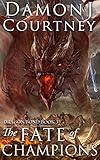
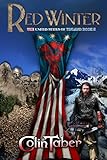 In November, Colin Taber released the sequel to United States of Vinland: The Landing. In Red Winter we see the Viking settlers face a new crisis. In The Landing, they survived shipwreck and the harsh Markland winter. In Red Winter the seeds of mistrust, mistreatment and brutality sown by the Lakeland Wolves finally yield the requisite whirlwind. (Didn't really mix enough metaphors there. Must try harder.) Meanwhile, back in Iceland, manoevres are afoot that could challenge the very ownership of the Lakeland vales.
In November, Colin Taber released the sequel to United States of Vinland: The Landing. In Red Winter we see the Viking settlers face a new crisis. In The Landing, they survived shipwreck and the harsh Markland winter. In Red Winter the seeds of mistrust, mistreatment and brutality sown by the Lakeland Wolves finally yield the requisite whirlwind. (Didn't really mix enough metaphors there. Must try harder.) Meanwhile, back in Iceland, manoevres are afoot that could challenge the very ownership of the Lakeland vales.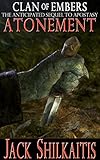 First in December is Survivor. This is old school space adventure. Saff manages to combine some serious and hard imagining with a whole sackful of nods to everything in and a few things out of the genre, old and new. A hugely satisfying read, this is a sort of Lara Croft in space only written by a woman, so I guess what Lara Croft would be like if she was being scripted by, I dunno, Rhianna Pratchett?
First in December is Survivor. This is old school space adventure. Saff manages to combine some serious and hard imagining with a whole sackful of nods to everything in and a few things out of the genre, old and new. A hugely satisfying read, this is a sort of Lara Croft in space only written by a woman, so I guess what Lara Croft would be like if she was being scripted by, I dunno, Rhianna Pratchett?